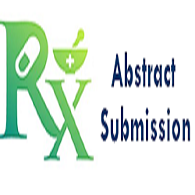Bio Chemical Pharmacology
Biochemical pharmacology uses the methods of biochemistry, biophysics, molecular biology, structural biology, cell biology, and cell physiology to define the mechanisms of drug action and how drugs influence the organism by studies on intact animals, organs, cells, subcellular compartments and individual protein molecules. The biochemical pharmacologist also uses drugs as probes to discover new information about biosynthetic and cell signalling pathways and their kinetics, and investigates how drugs can correct the biochemical abnormalities that are responsible for human illness, thus enabling the elucidation of pathophysiological mechanisms that pave the way for further drug discover
Related Conference of Bio Chemical Pharmacology
21th International Conference on Allergic Diseases and Clinical Immunology
13th World Congress and Exhibition on Antibiotics and Antibiotic Resistance
Bio Chemical Pharmacology Conference Speakers
Recommended Sessions
- Adverse Drug Reactions
- Antibiotic Prophylaxis
- Antibiotic Regulatory Affairs
- Antibiotic Resistance: Opportunities and Challenges
- Antibiotics
- Antibiotics and Mechanism of Action
- Antibiotics for Emerging and Re-emerging Diseases
- Antibiotics for Various Diseases and Infections
- Antibiotics in Different Industries
- Antibiotics: In Pregnancy and Lactation
- Antibiotics: Market Analysis and Business Opportunities
- Antimicrobial Peptides
- Antimicrobial Therapy
- Applications of Antibiotics
- Bio Chemical Pharmacology
- Clinical Pharmacy and Pharmacotherapeutics
- Clinical Research Statistics
- Clinical Trials of Antibiotics
- Current Research in Antibiotic Resistance
- Developing Alternatives to Antibiotics
- Different Types of Antibiotics
- Drug Discovery and Novel Delivery Technologies
- Drug Safety Testing
- Drug Screening and Discovery
- Micro Organisms in Recent Drug Discovery
- MRSA
- Pharmacokinetics and Pharmacodynamics of Antimicrobial Drugs
- Pharmacology
- Pre-clinical and Clinical Trails
- Prevention and Control of Antibiotic Resistance
- The Emergence of Antimicrobial Resistance
- The Next Generation Approach of Antibiotics
- Toxicology
Related Journals
Are you interested in
- Adaptive Immunity, Memory Formation & T-Cell Engineering - European Immunology 2026 (France)
- Allergy, Hypersensitivity & Immune Tolerance - Immunology 2026 (France)
- Allergy, Hypersensitivity & Immune Tolerance Strategies - European Immunology 2026 (France)
- Antibiotic Prophylaxis - Antibiotics 2026 (UK)
- Antibiotic Resistance: Opportunities and Challenges - Antibiotics 2026 (UK)
- Antibiotic-resistant Bacterial infections - Antibiotics 2026 (UK)
- Antibiotics - Antibiotics 2026 (UK)
- Antibiotics for Various Diseases and Infections - Antibiotics 2026 (UK)
- Antibiotics: In Pregnancy and Lactation - Antibiotics 2026 (UK)
- Antimicrobial Peptides - Antibiotics 2026 (UK)
- Antimicrobial Therapy - Antibiotics 2026 (UK)
- Autoimmune & Inflammatory Disorders - Immunology 2026 (France)
- Autoimmunity Mechanisms & Precision Immunoregulation - European Immunology 2026 (France)
- Cancer Immunology & Tumor Microenvironment - Immunology 2026 (France)
- Cellular Signaling & Cell Fate Determination - Immunology 2026 (France)
- Clinical and Translational Immunology - Immunology 2026 (France)
- Clinical Trials of Antibiotics - Antibiotics 2026 (UK)
- Computational Immunology, AI Modeling & Immune System Simulation - European Immunology 2026 (France)
- Current Research in Antibiotic Resistance - Antibiotics 2026 (UK)
- Cytokine Signaling Networks & Immune Modulation - European Immunology 2026 (France)
- Developing Alternatives to Antibiotics - Antibiotics 2026 (UK)
- Drug Discovery and Novel Delivery Technologies - Antibiotics 2026 (UK)
- Immune Cell Reprogramming & Gene-Edited Immunotherapies - European Immunology 2026 (France)
- Immunogenetics & Epigenetic Regulation - Immunology 2026 (France)
- Immunology & Vaccines - Antibiotics 2026 (UK)
- Immunometabolism - Immunology 2026 (France)
- Immunometabolism & Cellular Energy Dynamics - European Immunology 2026 (France)
- Immunotherapy & Immune Modulation - Immunology 2026 (France)
- Infectious Diseases - Antibiotics 2026 (UK)
- Infectious Diseases & Host–Pathogen Interactions - Immunology 2026 (France)
- Inflammation Biology & Chronic Immune Disorders - European Immunology 2026 (France)
- Innate and Adaptive Immune Mechanisms - Immunology 2026 (France)
- Innate Immune Sensors, Pattern Recognition & Host Defense - European Immunology 2026 (France)
- Innovations in Cell Biology & Imaging Technologies - Immunology 2026 (France)
- Mechanisms and Evolution of Antibiotic Resistance - Antibiotics 2026 (UK)
- Micro Organisms in Recent Drug Discovery - Antibiotics 2026 (UK)
- Microbiome–Immune Axis & Host Interaction Pathways - European Immunology 2026 (France)
- Microorganisms Producing Antibiotics - Antibiotics 2026 (UK)
- Modern Antibiotics for Various Diseases and Infections - Antibiotics 2026 (UK)
- Molecular & Cellular Immunology - Immunology 2026 (France)
- Mucosal Immunity & Barrier Protection Mechanisms - European Immunology 2026 (France)
- Nanotechnology-Enabled Immune Delivery Systems - European Immunology 2026 (France)
- Neuroimmunology & Brain–Immune Interactions - Immunology 2026 (France)
- New antibiotics and non-antibiotic approaches - Antibiotics 2026 (UK)
- Next-Generation Vaccines & Antigen Engineering - European Immunology 2026 (France)
- Pharmacokinetics and Pharmacodynamics of Antimicrobial Drugs - Antibiotics 2026 (UK)
- Pharmacology & Toxicology - Antibiotics 2026 (UK)
- Prevention and Control of Antibiotic Resistance - Antibiotics 2026 (UK)
- Stem Cells & Regenerative Immunology - Immunology 2026 (France)
- The Next Generation Approach of Antibiotics - Antibiotics 2026 (UK)
- Tumor Immunology & Personalized Cancer Immunotherapies - European Immunology 2026 (France)
- Vaccines & Vaccine Technology - Immunology 2026 (France)
- Viral Immunology, Emerging Pathogens & Host Response - European Immunology 2026 (France)

